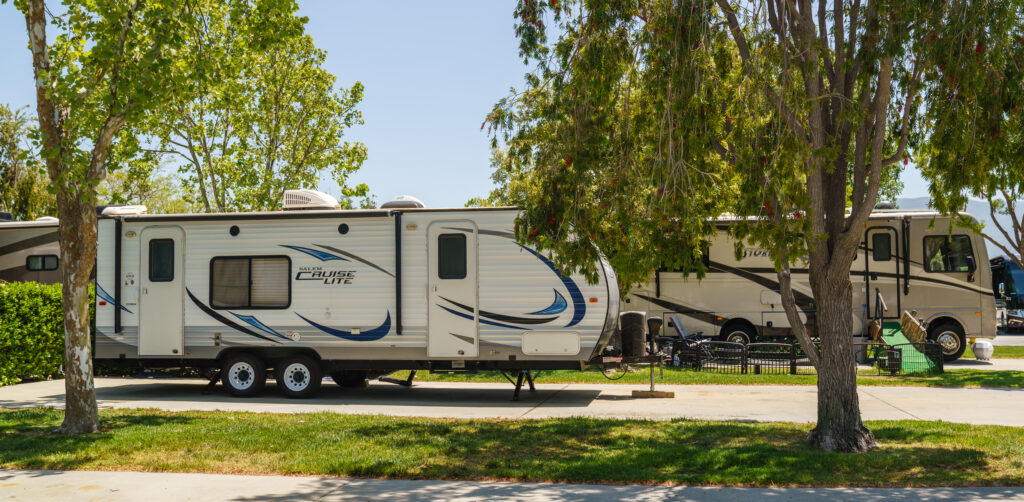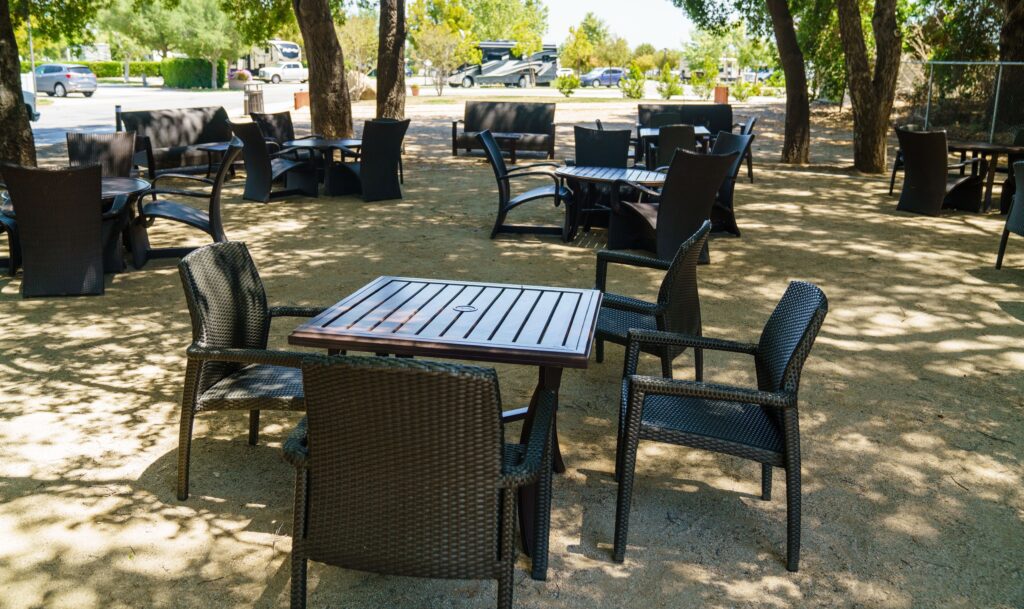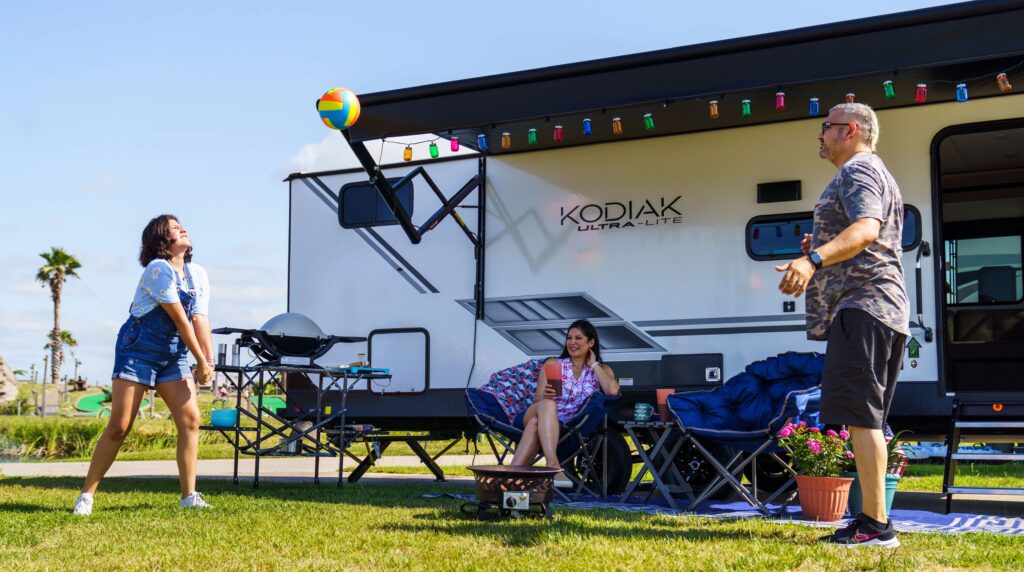We all know the best-laid plans aren’t always executed without a hitch. As a campground owner, you’ve probably dealt with managing unexpected guest experiences a time or two. Let’s be honest: it’s never fun, but it’s essential to delivering the best guest experience possible for all your campers.
Stuff happens, but when it does, your ability to smooth things over and keep your guests happy is vital to your campground’s reputation. The impacts of a negative review can reverberate far and wide online, so it’s in your best interest to remedy issues before they cause a camper to post a scathing review about your property.
Managing unexpected guest experiences is as much about prevention as it is about how you handle confrontations with frustrated guests. So we’ve taken a list of some of the most common camper complaints and compiled some tips for preventing those complaints.
But we’ve also provided some quick tips on handling upset guests when their stay isn’t going as they planned.
Let’s get comfortable with the sometimes uncomfortable side of owning a campground.

Your staff’s attitude is important.
One of the major complaints expressed by unsatisfied campers is poor attitudes from campground staff. This one seems easily correctable, but many companies struggle to create a positive workplace culture.
Creating an engaging environment for your staff will spill over to how they interact with campers. Here are a few ideas for improving employee morale:
- Connect your staff to your campground’s purpose. Why did you decide to open a campground in the first place?
- Create opportunities for employee recognition. Maybe it’s an “Employee of the Month” award or a weekly call-out for a staff member that went above and beyond.
- Be transparent with your communication. Employees will engage more consistently when they know the Why underscoring many of your decisions.
- Give staff members autonomy. Invest time in employee training and empower staff to excel in their roles without micro-management.
- Check in with staff regularly. One-on-one meetings monthly will help you address staff concerns.
Maintain a clean campground.
Other camper complaints include dirty restrooms, unkempt common areas, and, believe it or not, too much mud, sand, and dirt in the campground. While the latter is part of the camping experience, the first two are definitely within your control.
To reduce unexpected guest experiences in the form of disappointment about your campground’s appearance, here are a few tips:
- Set a maintenance schedule. Break down tasks into daily, weekly, and monthly categories to stay organized.
- Communicate with your maintenance crew. Create an easy way for your maintenance staff to communicate the need for significant repairs or supply renewal so they can be addressed promptly.
- Consider camper behavior. Identify hours when campers are least likely to use restrooms and common areas to close those facilities for cleaning and maintenance.
- Pay attention to water drainage. Making sure water doesn’t collect in campsites or common areas will reduce mud and can also deter bugs from your campground–another common camper complaint.
Budget for resurfacing. Consider setting money aside to add gravel or concrete surfaces to areas of your campground that are particularly muddy or dirty.

Ensure well-kept utilities.
Bad electrical hookups, dirty city water, and unlevel sites are three more of the top 10 most common camper complaints. And these are some of the basic necessities of a good campground: campers pay for quality services and a safe place to park their RV overnight.
So you can imagine why poor water quality, unreliable electricity, and a site that leaves you sleeping with your head downhill can lead to negative and unexpected guest experiences. Here are some tips for ensuring well-kept campground utilities:
- Test your water frequently. This is more important and achievable if your campground pulls water from a well. The quality of city water will somewhat be out of your control.
- Practice tree management. Ask your landscaping and maintenance staff to regularly inspect the growth of trees in your campground to ensure they are compromising the health and integrity of your power lines.
- Test power pedestals regularly. This could be an annual or biannual inspection, but you should make sure your power pedestals aren’t going to cause electrical issues for your guests.
- Keep an inventory of utility-related RV supplies: Stock your camp store with inline water filters, surge protectors, sewer hoses, leveling blocks, and other RV essentials that will help guests enjoy clean water, safe power, sanitary dumping, and a comfortable place to rest.
Enforce campground rules.
Good campground management goes beyond checking guests in with a smile. You and your staff should maintain a physical presence throughout your campground to ensure campers follow campground rules and, generally speaking, respect their neighbors.
This requires a balance. Many campers go camping to escape their regular routine and let loose a little. Your task is to create a space where campers can do that while honoring the different schedules and agendas of the other campers they’re sharing a space with.
Here are some tips to help you accomplish this:
- Drive your campground twice a day. Breakfast and dinner hours are great times to make your presence known throughout your campground. It also provides opportunities for value-added interactions with guests by recommending hikes, restaurants, breweries, and attractions in your area.
- Post quiet hours clearly. Display your quiet hours clearly on a sign near your campground entrance station and in campground literature/brochures provided to guests upon check-in.
- Have night staff sweep the campground at the commencement of evening quiet hours. Staff sweeps 30 minutes before, at, and 30 minutes after quiet hours can help alleviate complaints about noisy campground neighbors.

Create a safe environment.
Campers also want to feel safe when they pull into their campsite. While your surrounding area may be out of your control, you can take a few precautions within the campground property to increase safety.
- Install an entrance gate. A gate with a code that’s only given out to campers is a good way to make guests feel safer during their stay.
- Plant natural fences/barriers. Using trees or planting hedges along the borders of your campground can be a great way to offer campers more privacy and a better sense of safety within your park.
- Keep your campground well-lit. This can be a delicate subject because many campers want to sit outside and stargaze at night without city lights hindering their view. But if guests feel unsafe walking to your restroom facilities after dark, additional lighting could be a practical solution.
If things go wrong?
Diligent preparation will reduce the likelihood of unexpected guest experiences, but it may not eliminate them. So here are some tips for handling unexpected guests experiences when they do arise:
- Show compassion and patience. No matter how many times you’ve heard a particular complaint, show each guest that their issue is valid and their voice is heard.
- Offer realistic discounts for bad experiences. Discounts on future stays or refunds for a single night of a multi-night stay might not damage your bottom line and can inspire unsatisfied guests to give your campground another chance.
- Express a willingness to improve. Sometimes your best course of action is to thank a camper for bringing an issue to your attention and demonstrate action to resolve the issue swiftly and decisively.
Managing unexpected guest experiences requires patience and dedication to providing the best camping experience possible. We hope these tips provide some new strategies or management practices to consider for your campground.